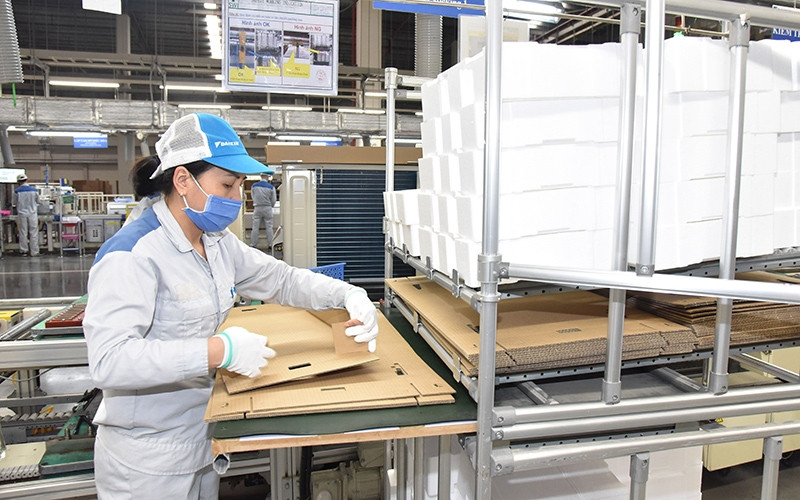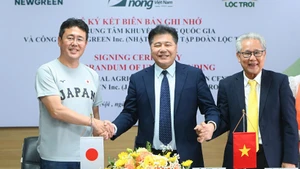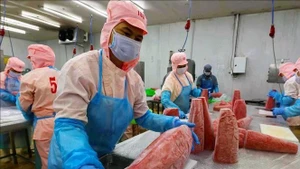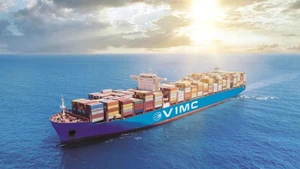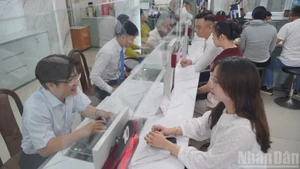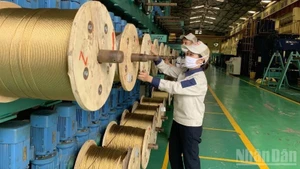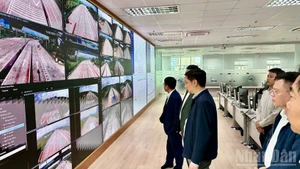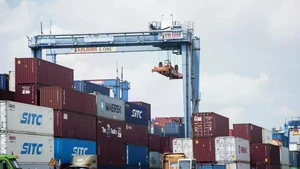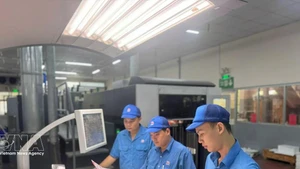Accompanying businesses
The Government’s support packages are the driving force for the economy to regain its growth momentum after periods of being almost frozen. Following the many support packages implemented in 2020 and 2021, Resolution No. 43/2022/QH15 was approved by the National Assembly at the beginning of 2022 to serve the programme of socio-economic recovery and development. This is considered a fiscal policy with an unprecedentedly large budget of about 350 trillion VND (equivalent to 4% of the country's GDP).
Immediately after that, the Government issued Resolution No. 11/NQ-CP to implement this programme. The timely actions of the National Assembly and the Government have basically met the wishes of the business community and people, showing a strong determination to bring our economy to overcome difficulties soon.
The programme has been in effect for more than two months, in which a number of policies have been immediately put into practice, with many beneficiaries having received support.
The most notable in the support package of 350 trillion VND is the policy on reducing and exempting tax, fee and interest rates. Of which, nearly 50 trillion VND will be used to reduce VAT by 2% to help support economic growth while stabilising the macro-economy and controlling inflation.
In addition, many other support policies are being conducted such as providing 50% reduction of registration fees for domestically assembled and manufactured cars from December 2021 to May 2022 and 50% reduction of environmental protection tax on jet fuel in 2022.
According to calculations, this will help car manufacturers increase sales volume significantly and help aviation businesses to save about 1,600 billion VND. This is a significant resource to revive businesses after a period of struggling because of the pandemic.
Moreover, the Ministry of Finance is building a policy to reduce land and water surface rent by 30% in 2022 and extend payment deadlines for a number of tax lines in 2022. These two policies are desired by millions of business households and hundreds of thousands of businesses.
According to economist Ngo Tri Long, the fiscal support packages over the past two years have come to life as the economy is growing again with improved budget revenue.
Specifically, the groups of solutions on taxes, fees and land rent are highly appreciated by businesses for their easy access. However, fiscal support policies only contribute to helping businesses increase their resilience for a time, so in the long run, the Government needs to study other non-financial support policies and make effective institutional reforms to help increase the intrinsic capacity of enterprises themselves and the self-recovery ability of the economy.
Creating recovery momentum for the economy
According to the General Statistics Office, nearly 116,800 enterprises were established in 2021 with a total registered capital of over 1,600 trillion VND. Although there was a decrease of 13.4% in the number of businesses and a decrease of 27.9% in the registered capital compared to the previous year, it was a positive result in the context of the complicated developments of the pandemic both at home and abroad.
In addition, foreign direct investment attraction showed signs of recovery with a total registered capital of more than 31 billion USD (up 9.2% compared to 2020), demonstrating the confidence of foreign investors in Government's pandemic control results as well as the investment environment in Vietnam.
However, nearly 55,000 enterprises temporarily suspended operation in 2021 (up 18% compared to the previous year) while 48,100 enterprises stopped operating and waited for dissolution procedures (up 27.8%). This showed the negative impact of the pandemic on production and business activities in the country, reflecting the ongoing strong purification, in which weak and uncompetitive businesses could be eliminated, being the basis to promote the capacity of the economy for more sustainable development.
President of the Vietnam Chamber of Commerce and Industry (VCCI) Pham Tan Cong said that 2022 is expected to continue to be a challenging year, requiring practical solutions to realise the set goals in 2022 including GDP growth target from 6% to 6.5%. Therefore, the reforms of institution and the business environment need to be more substantive to ensure the requirements of international competition. The Government and relevant agencies should actively and regularly consult the business community and industry associations during the implementation of policies for more effective outcomes.
On the other hand, it is necessary to speed up the implementation of the 2% credit interest rate support programme according to the Government's Resolution No 11 and low-interest loan packages (within 3 to 6 months) so that enterprises will have a source of finance to pay wages to employees during the economic recovery period.
In the context of the new normal, there is an urgent need to improve the performance of the government apparatus and to uphold the individual responsibility of leaders in flexibly and adaptively adjusting policies in accordance with the actual situation.
It is also necessary to review and optimise the interdisciplinary administrative procedures, especially the group of procedures related to investment, construction, land, and environment. The timely and effective support policies and a strongly reformed institution will evoke the entrepreneurial spirit and create a strong recovery momentum for the economy.
